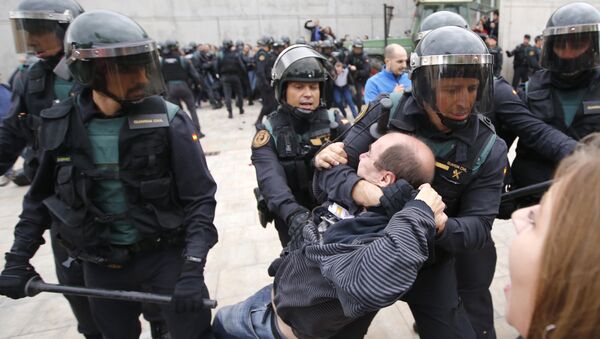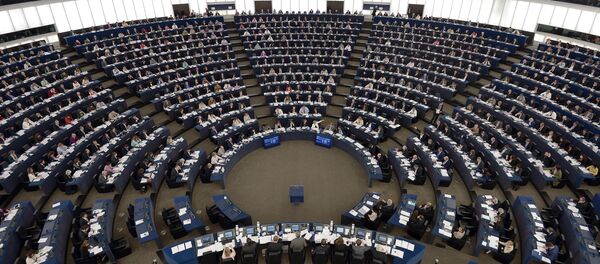The violent clampdown on the proponents of Catalonia’s complete breakaway from the rest of the country antagonized the pro- and anti-independence forces, while completely ignoring the opinion of those who sincerely believe that Spain needs to become a federation to stay united.
He added that many in Spain haven’t yet realized the magnitude of the problems facing the country in the wake of Sunday’s plebiscite.
On the day of the referendum the National Guard and National Police arrived in Barcelona and tried to thwart the vote.
Professor Steinko described this as a big mistake by Prime Minister Mariano Rajoy.
“The Spanish people staked everything on what Puigdemont wanted — to turn this whole thing into a final battle. I know that the atmosphere in Catalonia is just as flammable as it is in Madrid,” Steinko noted.
The flames of discord are being stoked by both sides, but Mariano Rajoy upped the ante by resorting to wholesale propaganda, violence and calling the referendum “illegal,” while Spanish courts had done nothing of the kind, he added.
“I’m sitting on the fence. My very future is on the line now <…> There are many people who think just like I do, but their voice is not heard in the media, which is a great pity,” Professor Steinko emphasized.
Meanwhile, the conflicting sides are sticking to their guns.
When Prime Minister Rajoy finally decided to act, it didn’t really work out. Instead of going directly to the people, he preferred to communicate with the people and the media via television thus justifying the “plasma premier” nickname he won during his previous stint in office from 2011-15.
The conflict is all the more painful as it is happening in a country bitterly split between the proponents of Catalan independence and those who believe that the country must remain united.
However, there are also those who are not running around waving flags but sincerely believe that a federation is exactly what the country needs to remain a single unit.
On Monday, Catalan authorities announced that 90 percent of the region’s population voted in favor of independence from Spain during Sunday's referendum.
Catalonia has been seeking independence from Spain for years. On November 9, 2014, about 80 percent of the Catalans who took part in a non-binding referendum on the region's status as part of Spain voted in favor of Catalonia becoming an independent state. The vote was, however, ruled unconstitutional by the authorities in Madrid.
On June 9, the president of the autonomous region, Carles Puigdemont, said that Catalonia would hold a unilateral referendum on independence on October 1, 2017, prompting criticism from Madrid.




